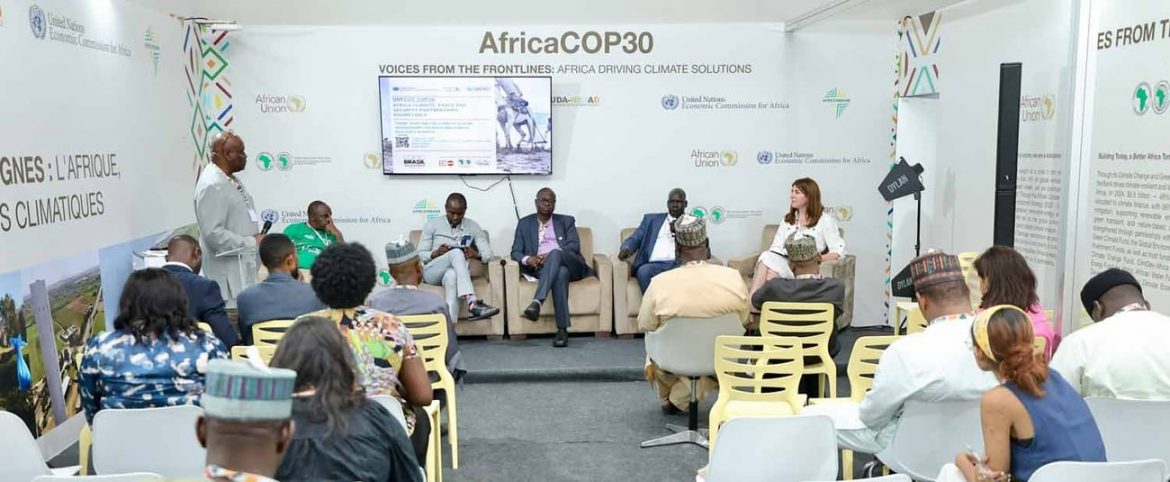As part of efforts to help address the climate–peace–security nexus, the United Nations Office to the African Union, the United Nations Economic Commission for Africa, and the African Union Commission convened a roundtable on 14 November 2025 in Belém, Brazil — host city of the United Nations Climate Change Conference (COP30).
The discussion, held under the theme “Adapting for Stability – Scaling Partnerships for Peace and Climate Resilience in Africa,” explored how the continent can strengthen cooperation and reinforce resilience in the face of rising climate-related security risks.
The side event brought together representatives from international organisations, development finance institutions, civil society, and other development actors, creating a platform for shared analysis and collaboration.
“Climate change is amplifying conflict and fragility on the continent,” explained Dr Al Hamndou Dorsouma, Manager for Climate Change and Green Growth at the African Development Bank Group. “In 2024 alone, climate disasters caused 9.8 million new internal displacements in Africa, highlighting how deeply interconnected climate risks and forced mobility are.”
He added: “Declining and irregular rainfall, as well as water scarcity, have altered the seasonal migration patterns of African pastoral communities, increasing competition between pastoral groups and between pastoral and agricultural communities. This has led to recurring conflicts in almost every region of the continent, from Ethiopia to Darfur, from Kenya to Nigeria, and throughout the Sahel.”
“There can be no implementation of climate projects without peace; we cannot fight climate change without peace,” said Nazanine Moshiri, Senior Advisor on Climate, Peace and Strategic Partnerships at the Berghof Foundation.
“As the continent’s leading development finance institution, the African Development Bank Group is fully committed to working with African countries and development partners to build climate resilience while addressing the root causes of conflict and fragility,” continued Dorsouma. “I invite our colleagues and partners here today, as well as those following online, to focus our efforts on financing: investing in early warning systems and adaptation measures is not only a humanitarian imperative, but also an economically rational and sustainable solution. Every dollar invested in climate adaptation and resilience generates an ROI of between two and 10 US dollars.”
According to Abdi Fidar, Director of the Climate Prediction and Applications Centre at the Intergovernmental Authority on Development (IGAD), it is now difficult to separate the security-climate nexus, as fragile areas do not benefit from climate finance.
Dorsouma went on to explain to those present that the African Development Bank’s response to the climate-peace-security nexus is threefold. First, there is its Strategy for Addressing Fragility and Building Resilience and its Transition Support Facility (TSF), a concessional financing mechanism for 37 low-income African countries enduring fragile situations. The Bank has also established a Climate Change and Green Growth Strategic Framework for 2030, which has positioned the climate-peace-security nexus at the core of its priorities for climate change adaptation in Africa.
Story was adapted from AFDB.
